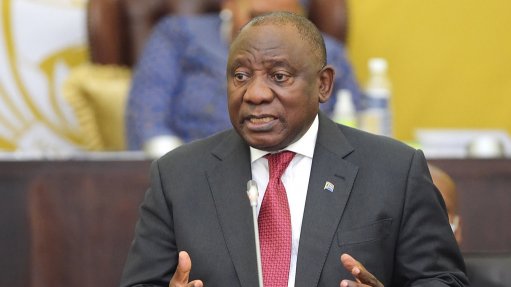
President Cyril Ramaphosa
President Cyril Ramaphosa acknowledged the “devastating impact” of almost daily loadshedding on the economy and the lives of South Africans but insisted in a speech made in response to the debate on his State of the Nation Address (SoNA) that South Africa would emerge from the electricity crisis with a “completely transformed energy landscape”.
Following the embarrassment of his SoNA statement that “the end of loadshedding is finally within reach”, which was promptly undermined by the implementation of Stage 6 only days later, several opposition parties lambasted the President for being out of touch.
Democratic Alliance leader John Steenhuisen described loadshedding as an existential threat to freedom.
Steenhuisen also highlighted the power crisis in his own extended metaphor about Tintswalo; a character introduced by Ramaphosa in his SoNA speech to highlight the benefits that had flowed to a child born at the dawn of South Africa’s democracy nearly 30 years ago, saying: “ In the same year that Mr Ramaphosa was elected, Tintswalo lost the first and only job she ever had, because the loadshedding crisis that the President had promised to end, shut down the factory where she worked.”
Following the declaration of intense loadshedding only hours after the SoNA the DA described the rapid turn of events as confirmation that the ANC government had “no plan to end loadshedding and that Ramaphosa’s much vaunted Energy Action Plan has been a dismal failure”.
In his response to the debate, Ramaphosa again insisted that “clear and measurable progress” was being made to end the power disruptions.
Nevertheless, he also listed the loadshedding crisis, together with unemployment, the rising cost of living, violent crime, corruption and deteriorating municipal services as among the “severe challenges that we still face”.
He insisted, however, that actions were being taken to overhaul the failing sector, as well as State-owned utility Eskom.
“For more than a century, electricity has been delivered by Eskom in the same way. We have changed that, and more changes are to follow,” he said noting the emergence of independent power producers.
“The transformation of Eskom with a view of making it much more effective is one of the most important reforms introduced by this administration.
“When completed, it will result in the complete overhaul of our electricity architecture,” he added.
Ramaphosa used the platform to again confirm that innovative funding approaches would be introduced to build more than 14 000-km of new transmission lines to help connect more renewable energy.
“As loadshedding is steadily and surely brought to an end, we will emerge from this electricity crisis into a completely transformed energy landscape,” he promised.